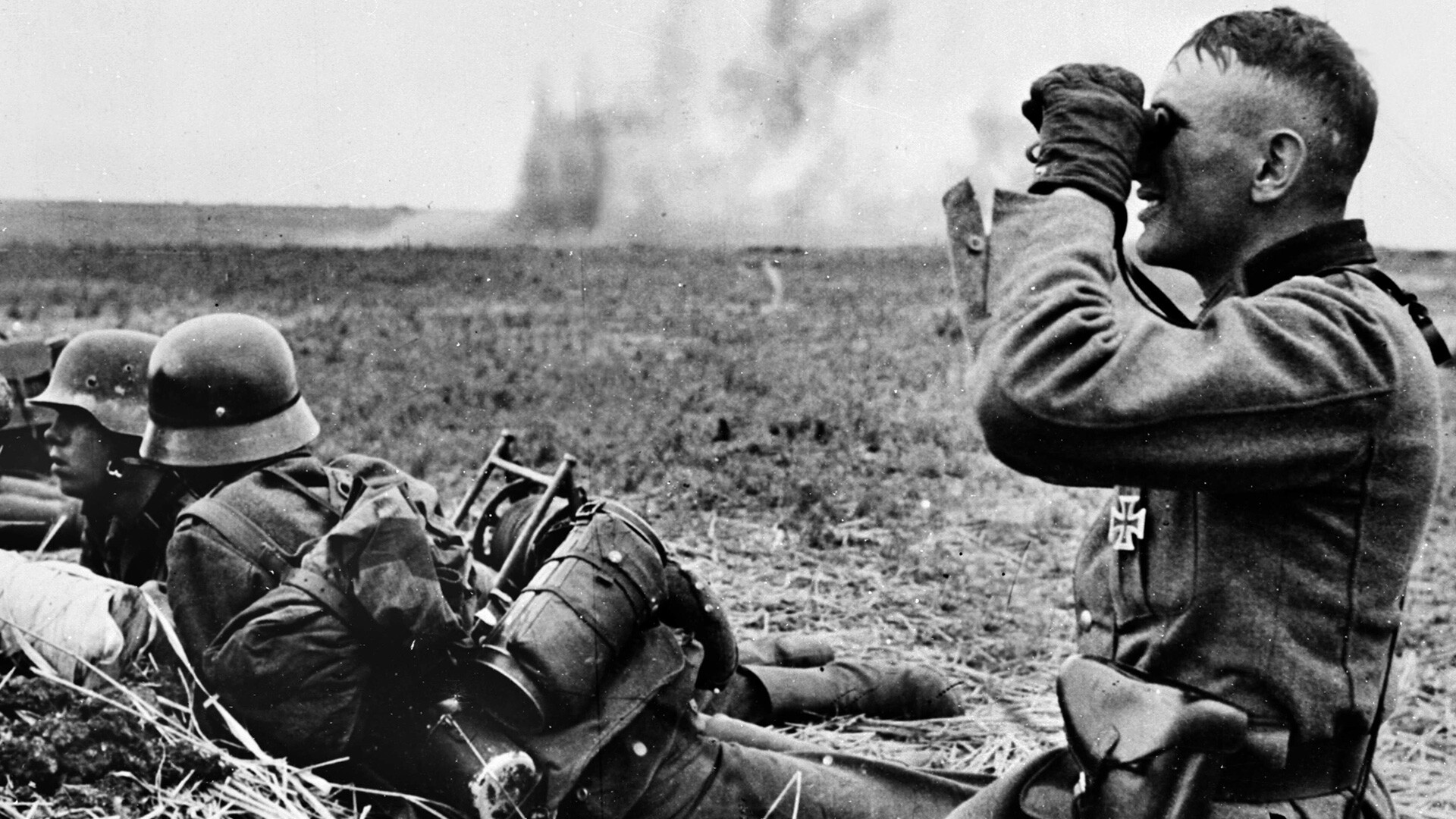
German soldiers in the outposts of the Kharkov area, May 1942.
Roger Viollet/Getty ImagesThe Nazis, of course, were not at all averse to subjugating the entire vast Soviet territory down to the Pacific coast, but they realized that these plans were not feasible.
“The exceptional size of Russian territory makes it absolutely impossible to conquer it completely,” noted Field Marshal Wilhelm Keitel during the preparations for the invasion of the USSR.
After defeating the Red Army, it was assumed that it would take from six to 10 weeks to achieve this. The German troops were to move to a line stretching from the Volga River to Arkhangelsk. According to the plan behind ‘Operation Barbarossa’, a defensive “barrier against Asiatic Russia” was to be established there. “The last industrial area remaining in Russian hands in the Urals can be paralyzed by the air force,” the document stated.
Due to the Wehrmacht's significant military successes, this operational and strategic frontier was significantly shifted eastward as far as the Ural Mountains themselves. "The security of the Reich will be ensured only when no foreign military units remain west of the Urals; the protection of this space… Germany assumes," Hitler declared on July 16, 1941.
It was presumed that deprived of Caucasian oil (oil fields in Siberia had not yet been discovered), the defeated USSR would simply disappear from the political map of the world as a single state and its remnants would not be able to threaten Germany in any way. The Russians would also lose the entire Far East and part of Siberia up to Lake Baikal, territories which, under the Kantokuen strategic plan, Japan was supposed to seize.
Hitler was not going to neglect his European allies, either. He planned to give eastern Karelia and a razed Leningrad to the Finns and Bessarabia and part of Ukraine to the Romanians.
If using any of Russia Beyond's content, partly or in full, always provide an active hyperlink to the original material.
Subscribe
to our newsletter!
Get the week's best stories straight to your inbox